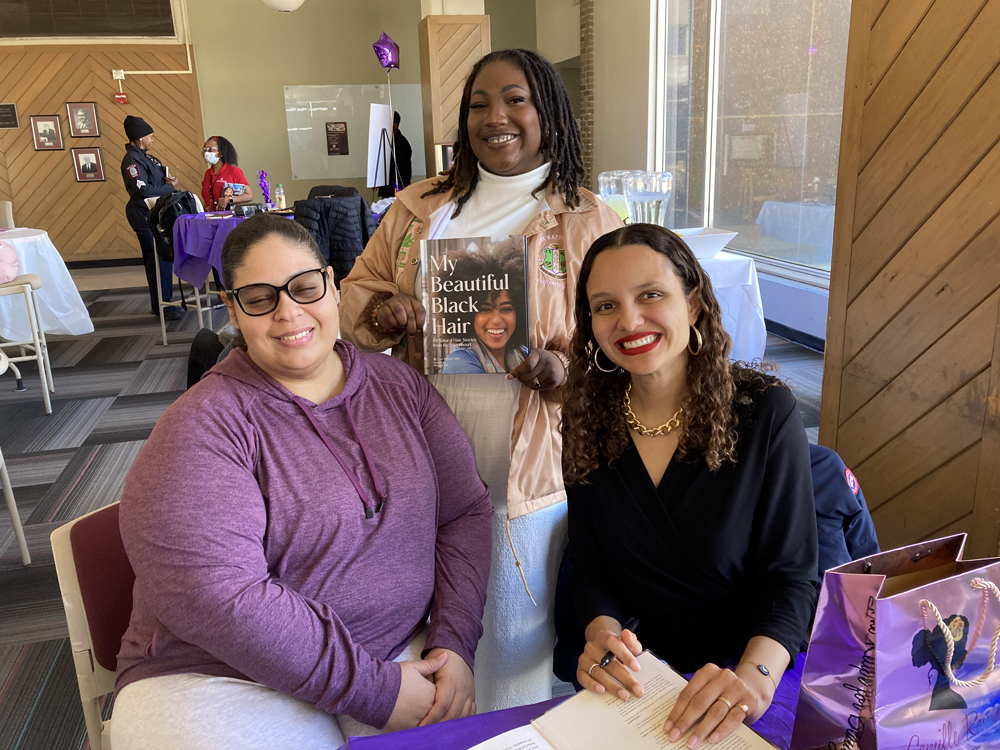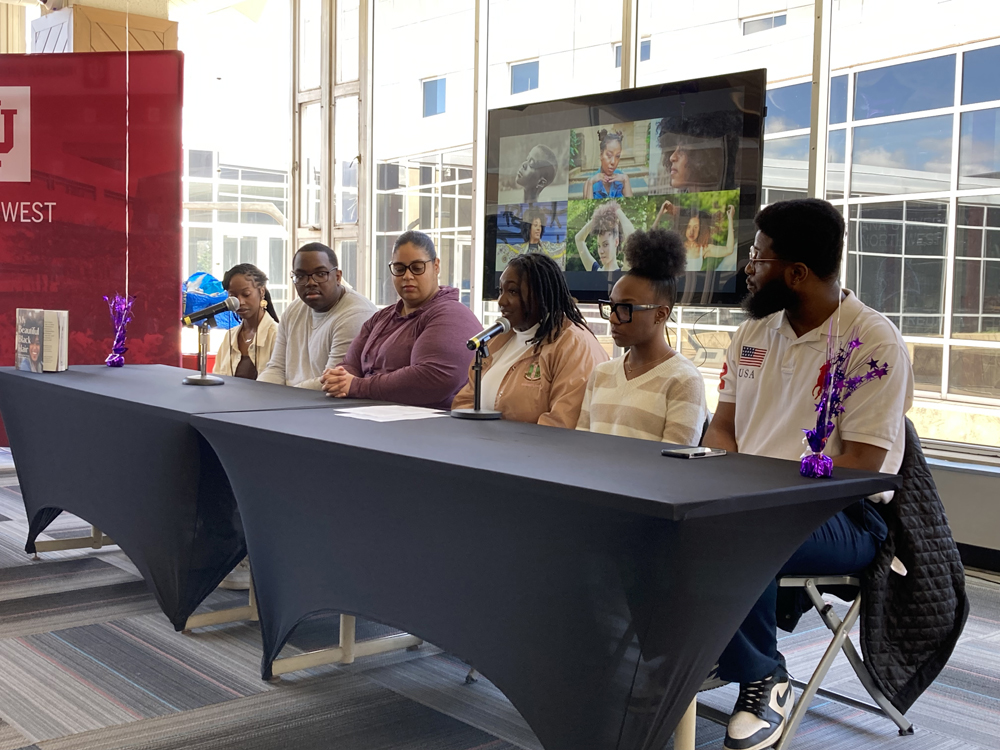
St. Clair Detrick-Jules, “My Beautiful Black Hair” author, seated right, with IU Northwest students Elizabeth Downey, seated left, and Jade Johnson, standing.
Coming-of-age stories from "My Beautiful Black Hair"
Contributed By: The 411 News
St. Clair Detrick-Jules' book and IU Northwest students talk about the path to natural hair styles

IUN students tell their stories: Arionne Wilson, l-r, Anthony Hudson, Elizabeth Downey, Jade Johnson, A’Reya Davis, and Michael Gaines
"When I had a relaxer, I couldn’t go swimming, I tried not to sweat, I was always paranoid when it rained. I always call it the prison of our hair,” wrote Karyn-Siobhan Robinson in one of the stories in St. Clair Detrick-Jules’ book My Beautiful Black Hair: 101 Natural Hair Stories from the Sisterhood.
The author was the guest speaker at Indiana University Northwest recently for a book talk and panel discussion sponsored by My Sisters’ Keeper, a student club for women of all ethnicities.
Detrick-Jules’ book sprang from the teasing and taunting her kid sister was getting at school because of her hair. “Khloe was just four years old, with tears running down her face, when she told my dad that she hated her afro because her white classmates were making fun of it.”
“I spent the next two years photographing and interviewing 101 Black women with natural hair. This was an opportunity for me to teach my little sister that her curls—just like everything else that comes from our Black ancestors—are beautiful,” Detrick-Jules said.
The picture book has each of the women with their natural hair styles along with a letter telling Khloe why they loved their natural hair.
“I knew when she was born, I wanted her to have natural hair,” Robinson said about her own daughter. “I didn’t want her to be imprisoned the way I was; I didn’t want her to have that life. I wanted her to be free.”
The panel of six, 4 women and 2 men, had their own Black hair stories.
“I’m a bi-racial child. My hair is not thick and puffy; it just hangs. My mom had no clue what to do with it. She was used to more textured hair,” said sophomore Elizabeth Downey. “People told me I couldn’t wear braids, locs, and twists; but I did. I haven’t had a relaxer in my hair since 2010. Now I can navigate black hair better than I did then, for both me and my daughter.”
Downey said her 9 year-old daughter was recently in trouble at school because of her hairstyle. “I received a letter from the school in Dyer reminding me of school policies on distracting hairstyles. They said the beads and barrettes in her hair were distracting,” Downey said. “I stood my ground. I told them you have students in this school with clips and bows in their hair.”
“While doing clinicals in the stenography program at hospitals, I had to constantly re-introduce myself to my co-workers and management when I changed my protected hairstyle,” IUN senior Arionne Wilson said. “You’d think they would recognize my face. It’s like a cognitive dissonance.”
Michael Gaines, an IU alumnus, said it wasn’t until recently that he began to care about hair maintenance. “I used to leave the house; no comb, no grooming. It took the continuous push from my grandmother, who said I represented her. Ever since I started doing it, it has built my confidence. And I thank my grandmother for that.”
Anthony Hudson, a senior, wears his hair close cut now; he cut off his dreadlocs last year. “My mom says I look more professional. I say, why can’t locs be professional.”
Advice from the panel on keeping Black hair beautiful and healthy: hydrate – drink a lot of water; know your hair texture; and oils.
Detrick-Jules asked students to think about the ways in which they can use hair as an entry-point into other related topics, including self-love, anti-Blackness, healing from racial trauma, feminism and community relationships.
Story Posted:04/09/2024
|